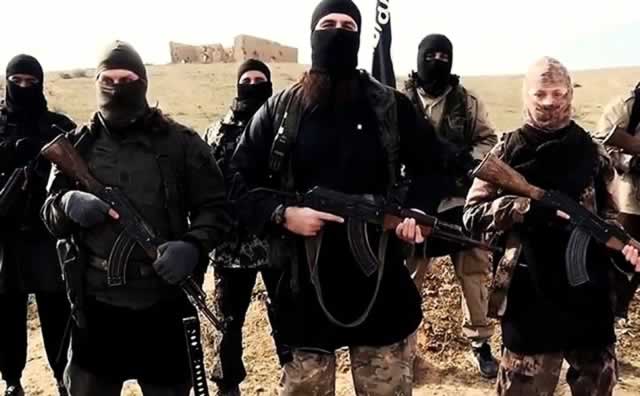The names we give to our dogs, children

David Mungoshi Shelling the Nuts
Some 20 or so years ago, a man who did the grounds at our family property generated endless mirth for us because of the way he related to Togo, the dog. Togo had this habit of often disappearing and turning up when least expected. When after his disappearances, Togo eventually re-appeared all contrite with pleading eyes and with his tail between the legs, Nyashanu as he was popularly known, would berate the poor dog in almost human terms. He spoke to the dog as to a fellow human.
“Now, Togo, don’t you go disappearing on me,” he always said in a formulaic way, agitated finger pointing at the cowed dog (the mixed metaphor is intentional).
“I don’t like a dog with no sense of propriety. Behave yourself you hear!”
Togo would grovel before Nyashanu, ears flat, watery tears welling in the corner of one of his eyes.
Nyashanu had a very special relationship with our dog and the dog knew it.
If its paw was irritated or inflamed, only Nyashanu could attend to Togo without endangering his fingers. Togo could be very snappish.
Perhaps the funny thing about Togo is the manner in which his name reflected his shenanigans. Going away and causing anxiety. The names that we give to our dogs are both interesting and instructive; and of course humorous.
I have taken the liberty to look at a few of these names in Shona, Ndebele and even a couple of them in Kalanga.
Prepare to have your sides split! Doc Vikela, Carl Josh Ncube and other comedians can take a leaf or two from the list.
In Shona-speaking homes, dog-names like Mogon’yei and Toziyana take the honours when it comes to confrontation and feuds between families or between members of families.
Mogon’yei practically tells someone to go to hell and does so in rather uncouth language (something to do with defecation).
Toziyana implies that one of the two quarrelling groups has in the past been taking advantage of the other, but has now been exposed and can no longer play the same old tricks.
Bazangenzani is a common Ndebele name for dogs. It is a defiant statement against perceived enemies. The owner of the dog is saying he will rise and shine regardless of what anyone may try to do by way of frustrating him.
Bazakunya is the Ndebele equivalent of Mogon’yei. It is a brooding threat against one’s antagonists and a statement of sure certainty that justice is coming.
Dlanokwakho tells you to eat what you kill and not be such a scrounger.
Macela, literally means “beggar” and is aimed at the person holding a perpetual begging bowl — one always asking for this and that. I’m sure we all know someone like that. A person who greets by begging for something. If you’re a habitual thief or you’re cuckolding someone, there is a grim warning in Fakubi (You’ll meet a painful death). The promise is that of untold suffering on your part.
Thembeni is an expression of utter dismay, a kind of groping in the dark when someone’s foolhardy actions are difficult to understand. You cannot understand what it is that gives this person the courage to do all the stupid little things he does.
In Kalanga, “Madlangolila” as a dog’s name and speaks of a noisy and greedy eater. Again, we probably know many such people. My father was very creative when it came to naming his dogs.
In later years, I could not help wondering about the names he gave to some of his dogs, considering the great love that he had for them. It took me a while to work out that his statements were not directed at the dog.
He gave one of his dogs the name “Vaneni”, Zezuru for “They keep bugging me”. Such bugging in the world as he knew it, could mean one’s untimely demise.
Years down the line after Vaneni had passed on, he had another dog that he called Mazvimutsa (You are at it again).
This small dog was aggressive and dependable, never failing to bark her lungs out most of the night.
But as things always happen, I never got to ask him to say who the dog’s names were directed at. That one could make a statement through a dog’s name, including answering a provocation from belligerent neighbours has always been common practice, especially in the rural areas.
For me, as child growing up in our home, the name Muroyindishe (The witch rules the roost) was perhaps the most intriguing of all.
I was never too sure whether or not it was just a statement of fact or a resignation to sheer force of a truth too strong and unpleasant to deny.
My younger brother Jake, a patriot and a ZIPRA cadre at some point had the luxury after independence of naming his dog “Botha”, in a kind of slap to the face of Apartheid’s last of the hard men.
Jake left Cyrene Mission sometime in 1970 as one of a number of boys who left that school and crossed into Botswana to go and train for Zimbabwe’s armed struggle, the struggle that brought independence.
One of the reasons for the boys leaving were the words and taunts of the white deputy headmaster of Cyrene at the time — an American in a pair of shorts and boots, whose obesity made the boys call him “Mafuta” — the fat one. His retort was, “You call me Mafuta? Alright, I’m fat, so what?
“You guys can’t do Math. Blacks can’t do Math.”
These are the words of Johnny Coulson, as told to me by my late brother Jake. Round about this time, the high breed band Ilanga fronted by Don Gumbo, the bassist with the velvet voice, were singing:
Botha, Botha, where you gonna go when Azania is free?
Botha, Botha, you just have to run into the sea. I loved this Botha song for its bouncy rhythm as well as its bubbly melody and biting lyrics. For me it recalled somehow the tragedy that white historians often refer to as “national suicide of the Xhosa”.
That dark incident in which at the behest of a young Xhosa maiden who was in the habit of dreaming apocalyptic dreams, the Xhosa burnt their crops, their stored grain and slaughtered their livestock to the last one standing.
Nongqause prophesied that if her instructions were done to the letter, on a certain day, the sun would rise and then go back where it had come from. Then a wonderful thing would happen: the white invaders would all be swallowed up by the sea. It’s a measure of the extent of the resentment that the Xhosas had for the white man that they unquestioningly obeyed this self-destruct prophecy from a hallucinating girl.
At the height of the second Gulf War, I took the baton and named my dog “Bush” as a record of my disdain for George W Bush, the man Nelson Mandela said could not ‘think properly, the man who also happened to be the son of a former CIA director who played no small part in bringing about Mandela’s arrest and long incarceration on Robben Island and other places during the era of Apartheid South Africa.
The manner in which we name the things in our world is instructive in terms of the things it tells us about what we feel and think about people and things. It also tells us something about the things that are often uppermost in our minds. Even when we name our children we say something about our lives.
Pachipano is what a mother-in–law says to her son’s wife when the latter appears to be disrespectful and uncaring. And after performing a feat one gives the name Muchineripi to a newly-born son to taunt whoever may have been sceptical about your prospects in certain matters.
Some names tend to be derogatory. Imagine being called Marunjeya or Marujata, names which both suggest the lowest one can go down the social ladder.
Muchaneta speaks of defiance. You dare the other person to continue with their antagonism and you tell them that they are wasting their time and will soon get tired of their repeated failures.
Masiiwa is the name of a girl whose mother dies in child birth and is normally the object of loving pity, while Chamunorwa is a boy’s name expressing dismay at the undeserved malice from certain quarters.
In today’s language you’re, in fact, asking the other person what his beef is. You’re probably telling them, to paraphrase Tanga WekwaSando’s “Mahobho” song lyrics:
Mahobho, why can’t you be nice, like “frowers”, in a better way?
Names like Mkhahlelwa, Mkhalalwa and Mlahlwa speak of social convulsions and about fathers who abandon their children to the fates. Such luck to be so named!
David Mungoshi is a writer, social commentator, editor and retired teacher.






Comments